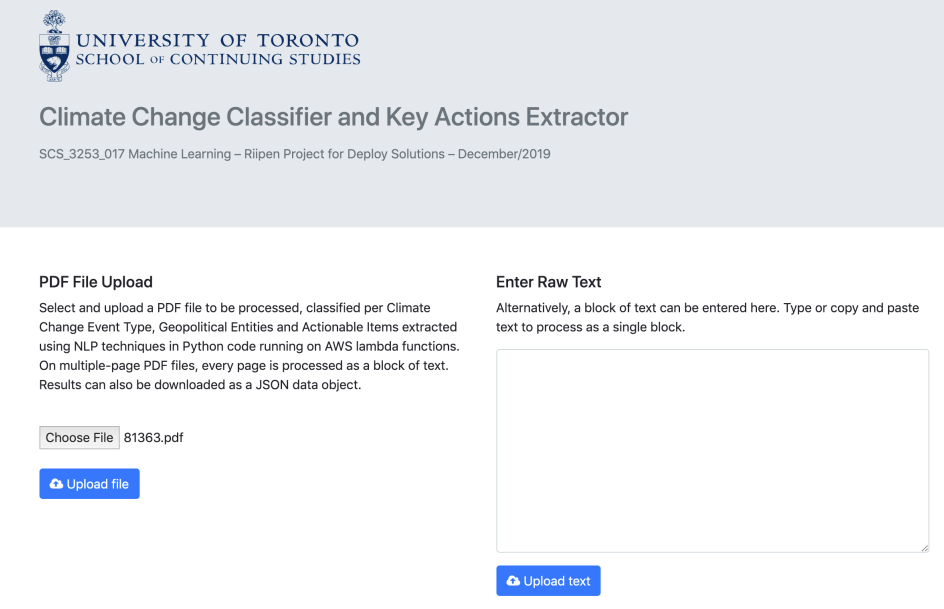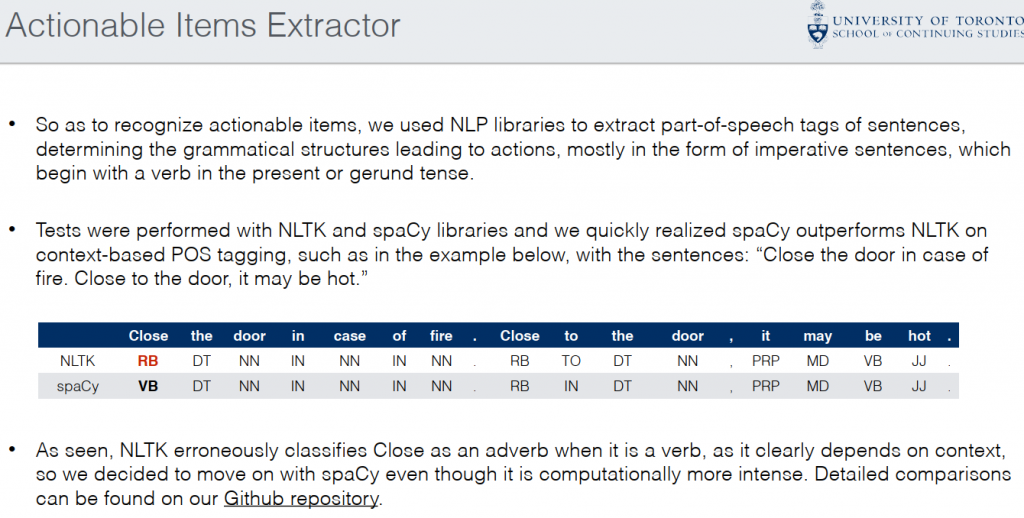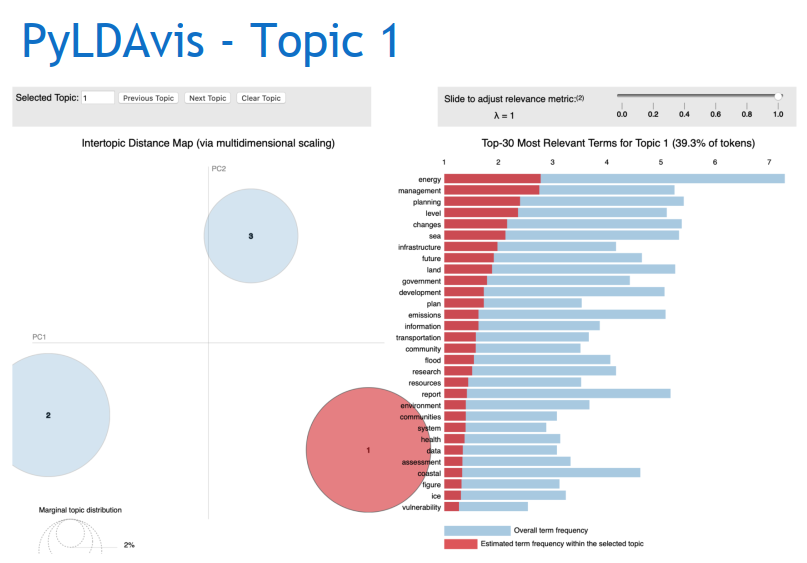Projects
CC7 - Extract guidance and actions from Climate Change documents using Machine Learning
Project start and end dates:
2019-09-01 to 2019-12-15
We are in the design and planning phase of a new climate change impact planning software product (related to “UN Sustainable Development Goal 13: Take urgent action to combat climate change and its impacts”). The product will recommend a set of actions that ordinary citizens can take to avoid, mitigate, adapt, or rebuild from climate change disasters. Although there is a wealth of guidance information out there in PDFs or on websites, rather than go through those one by one, we want to see if machine learning NLP and NLU techniques (and others?) could be used to automatically extract that kind of guidance from a document.
We would like you to explore ML techniques on a set of PDF and website content and produce some “climate change actions” via a model. This is exploratory and so we anticipate a few iterations where you produce some outputs, we examine those, and see how to structure the results into our proposed action structure. At the start of the project we will provide a set of PDF content, some suggested sentence structures/keyword examples, and a proposed action format (in JSON) for the model, and anything else you need.



The University of Toronto students investigated whether (and how) machine learning techniques could be used to extract meaningful climate change actions from existing content. While the project work was intended to be an exploration/feasibility study, the results are very polished and extremely promising.
The exceptional level of their project deliverable testifies to the quality, thoroughness, and professionalism of their research, teamwork, and problem solving approach. In arriving at their chosen “minimum viable product”, they explored many potential NLP, NLU, and other techniques and libraries.
Importantly for such a complicated domain, they were able to articulate the complex math and ML techniques and approaches in a relatively non-technical way. This allowed us to gain a (limited) understanding of what they were doing, and why. They frequently asked for feedback to adjust and improve their algorithm and align it with project goals and objectives. They also indicated many areas for future improvement or investigation.
Overall the team’s result was exceptional and of immense insight. They not only met but greatly exceed our expectations. We highly recommend them and their superlative work.
Thank
You!
We would like to thank Rahim Jiwa, Linda Peto, and the other students and teaching staff of SCS-3253 – Machine Learning course. *
* For privacy reasons, we only list people who gave us permission to do so. Did you contribute to this project? Contact us to be added!
Related Project
Software can help the world respond to climate change impacts and disasters.
In 2019 we set out to investigate if there is a need for a solution that gives citizens personalized help preparing for and recovering from climate change impacts and lets trusted authorities assist them and report on their results.
As part of this effort, a great deal of market and technical research was conducted over the last few years. Over 140 students have been involved so far, in dozens of academic institutions in Canada and internationally.
Our greatest finding is the willingness of citizens to take responsibility and help themselves, their neighbors and community plan for, mitigate and recover from climate change impacts and disasters. We also confirmed that a software solution can be built to help overcome the barriers they face when trying to do so.
Now we’re working on a prototype and sharing our findings and progress. Find out more on our OASIS project website!
The University of Toronto is a public research university in Toronto, Ontario, Canada, located on the grounds that surround Queen’s Park. It was founded by royal charter in 1827 as King’s College, the first institution of higher learning in the colony of Upper Canada.
A Riipen Project

Riipen is your online platform for virtual project-based learning
Get hands-on support from our students through an in-class project or virtual internship.
- In-class projects allow you to connect with one of our educators to embed your project into the students’ curriculum. Become the real-life case study for students in the classroom!
- Virtual internships are similar to in-person internships, except they are project-based with a clear outcome and the engagement is primarily done online.


